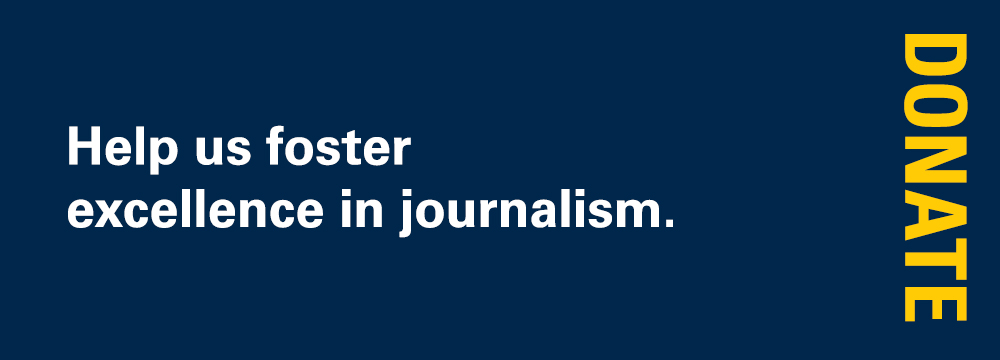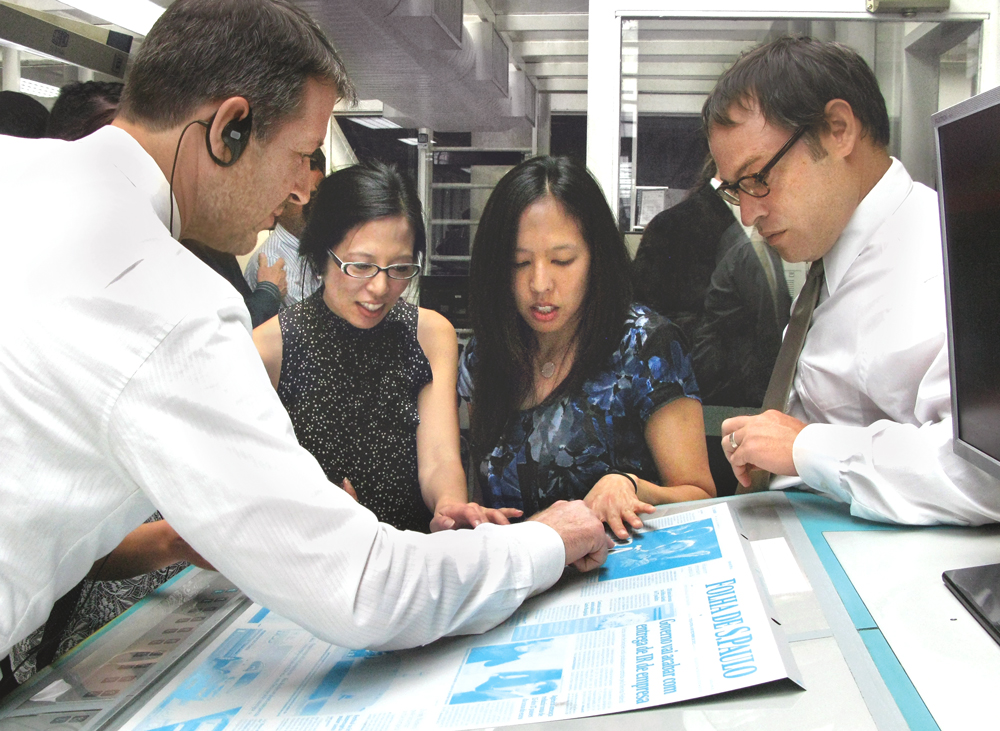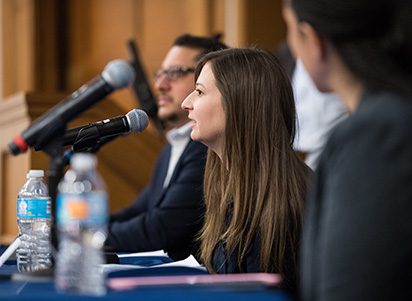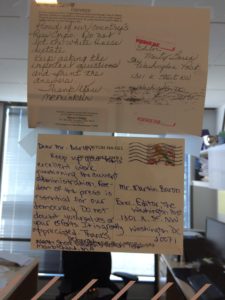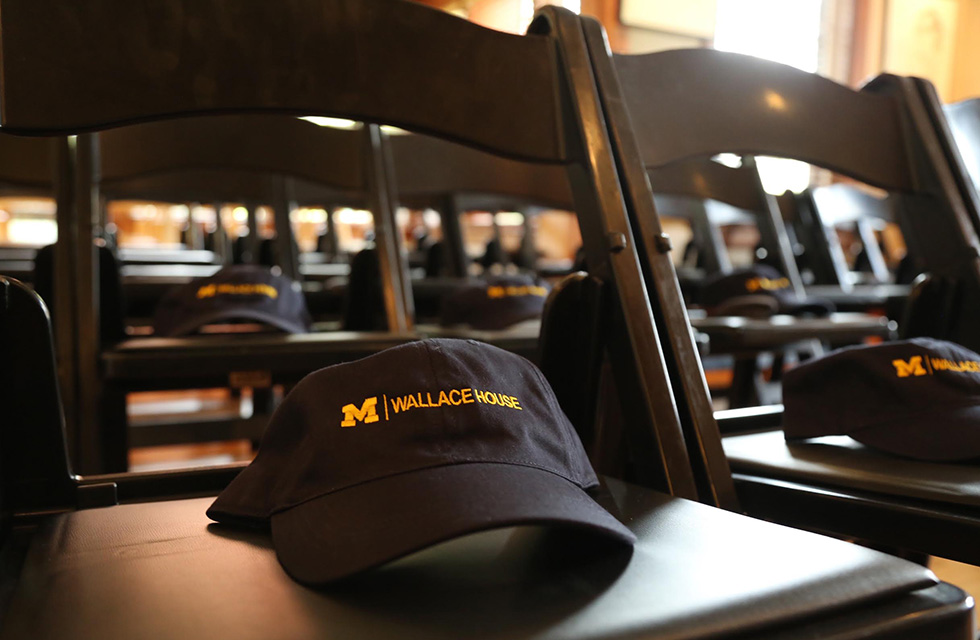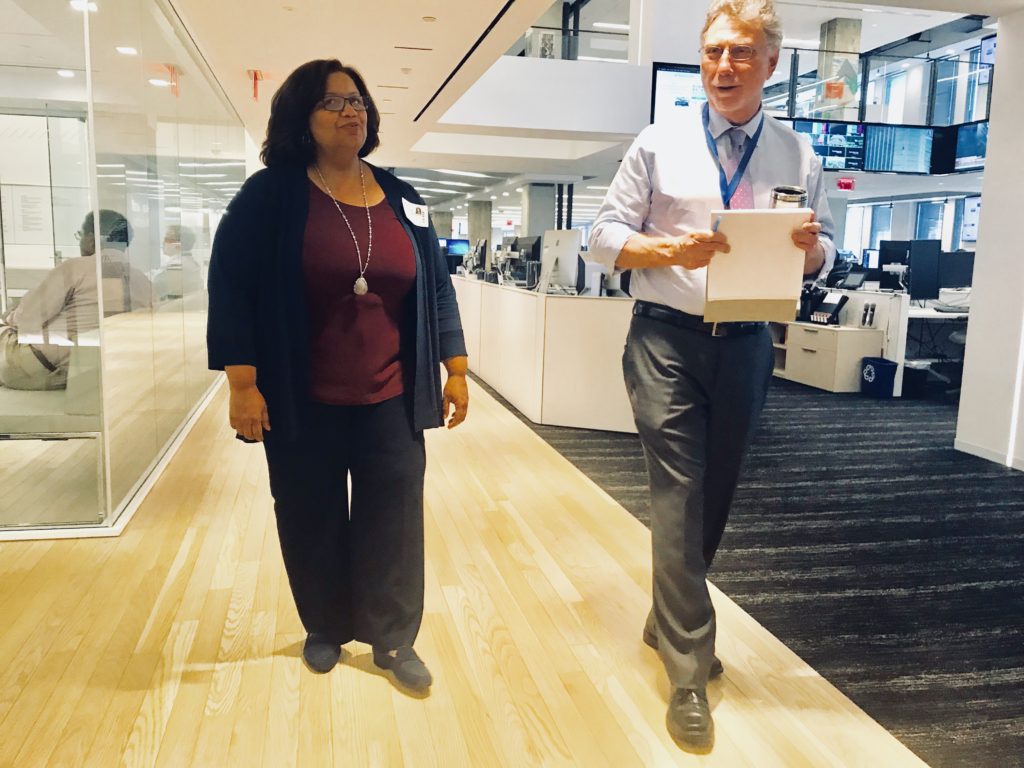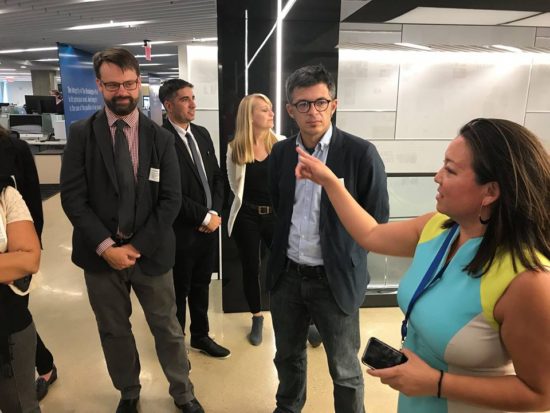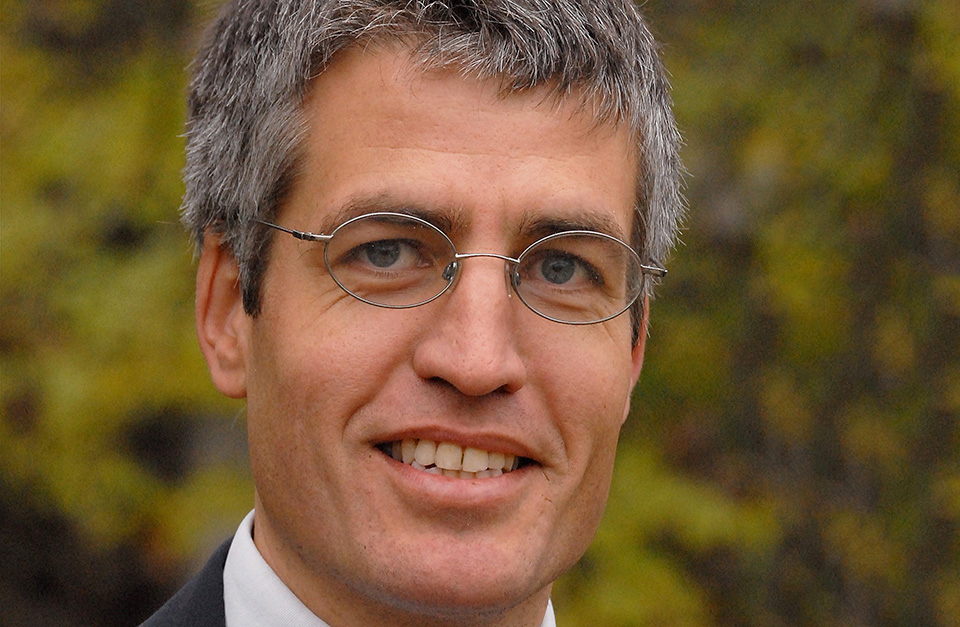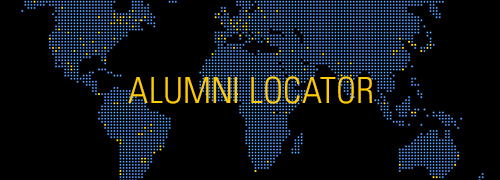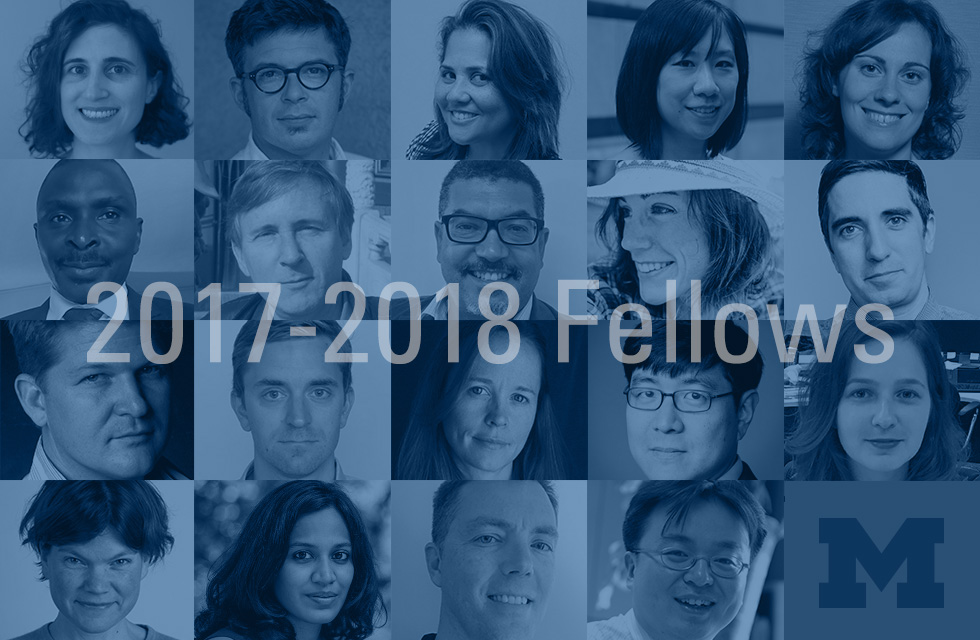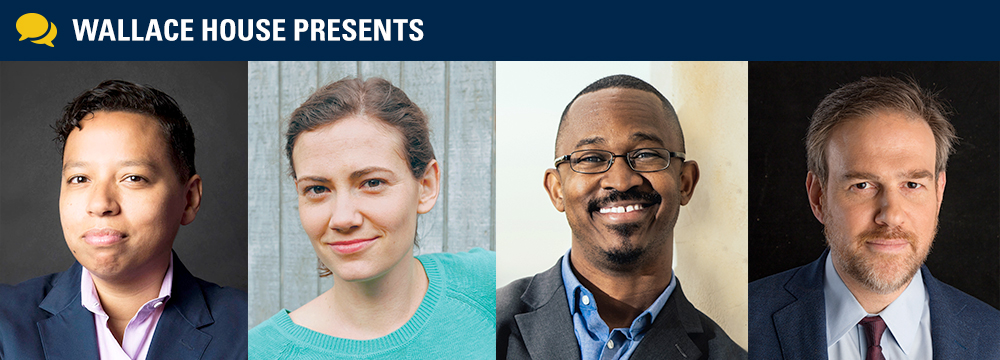
Anyone who has spent time in Wallace House knows that, as an organization that supports the work of journalists, we are also defenders of free speech. It is a fundamental belief evidenced in the irreverent caricatures of politicians that ring our living room and the wide array of provocative books and periodicals that fill our library. It is a proclamation painted in the washroom just off the foyer, in black block letters, a central tenet impossible to ignore – even in the smallest room in the house: “I disapprove of what you say, but I will defend to the death your right to say it.”
That sentence, penned by the English writer Evelyn Beatrice Hall in a 1906 biography of the French Enlightenment philosopher Voltaire, is commonly referenced in defense of free speech. For journalists, it serves as a dramatic restatement of basic rights laid out in the First Amendment, that “Congress shall make no law…abridging the freedom of speech, or of the press…”
At a time when that foundational right is being challenged and reexamined, it is all the more important to articulate its significance. Wallace House is working to do just that, through public events aimed at highlighting the vital role of journalism to document, interpret, analyze and investigate the forces shaping society.
By moving journalism away from devices and distractions and into public spaces, we aim to close the gap between an increasingly indifferent public and the reporters taking stock of our times. In this era of echo chambers, we feel called to actively foster civil discourse across profound gulfs of mistrust and cynicism.
For journalists, a free press is inextricably bound to the broader principle of freedom of speech, a principal that is most critical to defend when it is inconvenient and difficult to stomach. Our winter 2018 events will tackle that complexity head on, with prominent speakers from NPR, The New York Times and HuffPost.
We’ll encourage audiences to wrestle with how the American ideal accommodates and protects both Colin Kaepernick and Richard Spencer. We’ll examine the continuum from the Rev. Martin Luther King Jr.’s long arc of the universe to hashtag revolutions and crowd-sourced justice. And we’ll elevate important stories subsumed by fast-paced news cycles, from the unseen tragedies of border crossings to the global implications of China’s expanding soft power.
Such tough discussions are regular fodder for the journalists who come through the Knight-Wallace Fellowships for Journalists and the Livingston Awards, the truth-seekers and tellers who think, work and interact within our Wallace House walls. It’s pressing now that we move those conversations out into the open, to forums that prompt wider-reaching debate. Free speech and a free press, after all, are rights too precious to take for granted.
We hope you will mark these events on your calendar, share them with friends and join us.
1/16/18 | “Who Gets to Define American Values?” with Lydia Polgreen of HuffPost
1/31/18 | “Beyond the Wall: The Human Toll of Border Crossings” with Brooke Jarvis, Livingston Award winner
2/15/18 | “Speak Freely: Debating the First Amendment in a Changing America” a special event with NPR’s daily news program “1A” and host Joshua Johnson
2/20/18 | “Free Speech and the Necessity of Discomfort” with Bret Stephens of The New York Times
3/20/18 | “China’s Soft Power” The Eisendrath Symposium on International News
Information on times, venues and speaker details can be found on our event pages.
Lynette Clemetson is Director of Wallace House, home of the Knight-Wallace Fellowships for Journalists and the Livingston Awards at the University of Michigan. She is a 2010 Knight-Wallace Fellow.

